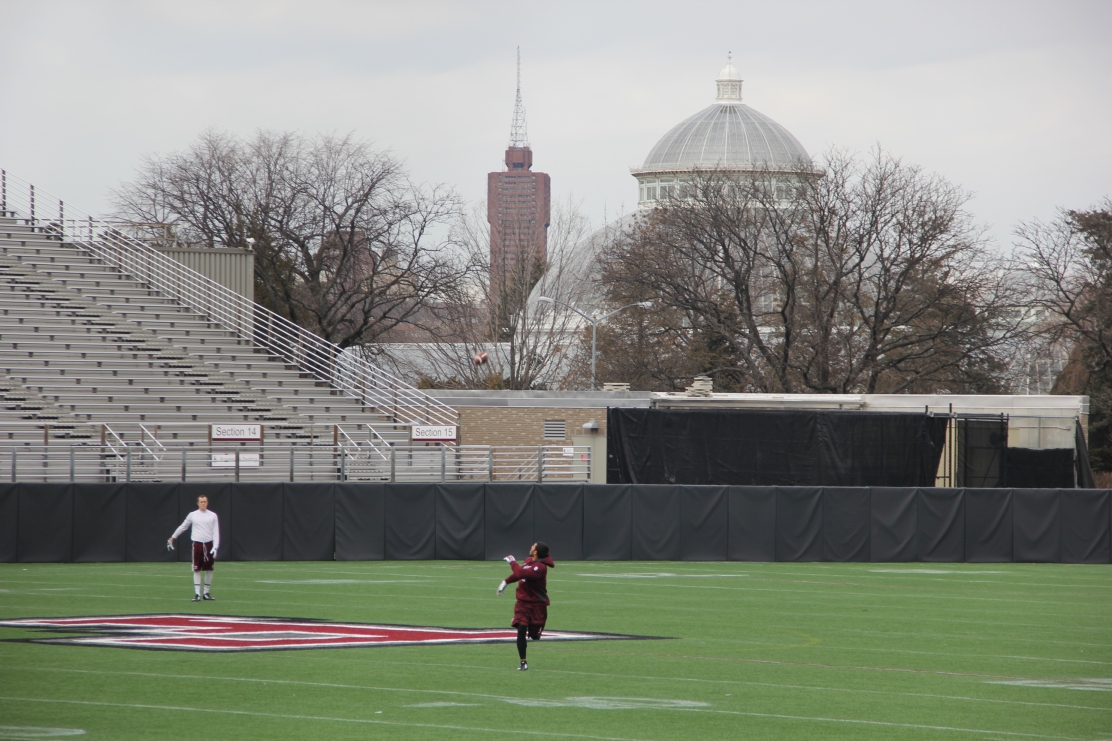By Jeff Coltin
Some falsehoods are told over and over again until they are taken for facts. The Great Wall of China is not visible from space. A penny dropped from the top of the Empire State Building would neither kill a passerby nor leave a mark in the sidewalk. And the Botanical Garden does not pay for Fordham’s water.
This rumor takes many shapes, but the most common one seems to be this: more than a century ago, Fordham gifted part of its campus to the Botans. In exchange, the garden agreed to pay the university’s water bill. That is why laundry is free in all the residence halls. That contract is almost up. Fordham is going to have to foot its own water bill, and tuition is going to skyrocket because of it.
But none of that is true.
“There is no agreement between the Botanical Garden and us whatsoever as to utilities or, particularly, water,” said Marco Valera, Fordham’s Vice President for Facilities Management. He would know. He is the guy who signs that water bill when it comes in.
But the rumor is popular on campus. Nearly every student, from freshman to seniors, had heard at least a variation. Some have heard that New York City pays Fordham’s water bill. Others heard that the university gets free water because the Garden recycles it (it remains unclear whether studentsthink they get the pre- or post-recycled water).
No one seems quite sure of the rumor’s source — not even the Residential Assistants. “I’ve heard it,” said Kelsey Schappell, FCRH ’15 and an RA in Belmont Community Housing, “but not in RA training.” Other RA’s agreed—there is no mention in training of why laundry is free.
Schappell heard the story from a friend who was an Environmental Studies major, but in asking students and professors in the program, nobody seemed to have heard it. Dr. Steven Stoll, associate professor of history who teaches in the Environmental Studies Program said he is not in that loop.
“Why would the Botanical Garden pay Fordham’s bill?” he asked by email. “Can you imagine how much water goes through all the buildings, the food service, and the dorms? Millions of gallons.”
Administrators do not seem to be perpetuating the myth, either. Senior Director of Communications Bob Howe seemed perplexed by the rumor. Joe Muriana, associate vice president for government and urban affairs, had not heard the water story, but was not surprised by the misinformation. “Even in some of our official stuff, there are… embellishments, I wouldn’t want to say errors.”
He pointed to a plaque on campus that stretches the truth of whether George Washington ever slept at Rose Hill Manor.
Muriana expected the tour guides of Rose Hill Society (RHS) were behind the rumor, but RHS Director Rosellen Greco disagreed. “We have no idea how such a rumor might have started,” she said in an email. “It’s certainly not something our student ambassadors are taught, nor is it something I have heard.”
RHS ambassadors, though, point to others within their ranks. A number of tour guides, dating back to 2011, said they had heard others sharing the story on tours, but none admitted to telling it themselves. Like most rumors, this one has been passed down for years, verbally, leaving no record of its appearance.
Reality is just as interesting as the rumor.
According to anthropology professor and de facto campus historian Dr. Alan Gilbert, the university used to own the land all the way to the Bronx River. In 1890, New York City was looking to set aside more green space, so they used their power of eminent domain to take all the land east of the modern Southern Boulevard (then a carriage path) down to the river.
The college was paid a fair price, but it had to move its cemetery—now behind Collins Hall—as covered in the Fordham Ram Volume 95 issue 14 (Sept. 24, 2014). The students could not have been happy about the seizure; they used the Bronx River as a swimming hole.
But Gilbert said their fortunes were better in winter when the low area that currently houses the parking garage was flooded to create an ice rink. Future students would benefit from the sale—the college used the money to build Hughes Hall and Dealy Hall.
Fordham does, of course, have some agreements with the Botanical Garden. Students can visit the grounds for free, and Fordham has helped the garden with overflow parking. It also takes all the university’s leaves each fall for composting
So why the free laundry? Valera said he decided nearly 20 years ago that it would be easier to just include the cost in the housing fee than for students to deal with paying in coins.
Representatives of the Botanical Garden never responded to repeated inquiries, but there is no reason not to take Valera’s word as fact.
“As we go through life,” he said, “realize, there’s no free lunch.”


interesting! FCRH ’12 here – heard this rumor even back in 2008 when I started. I actually work at the Garden now and whenever I’ve told coworkers they found it to be ridiculous – I almost believed it before they ridiculed me :)